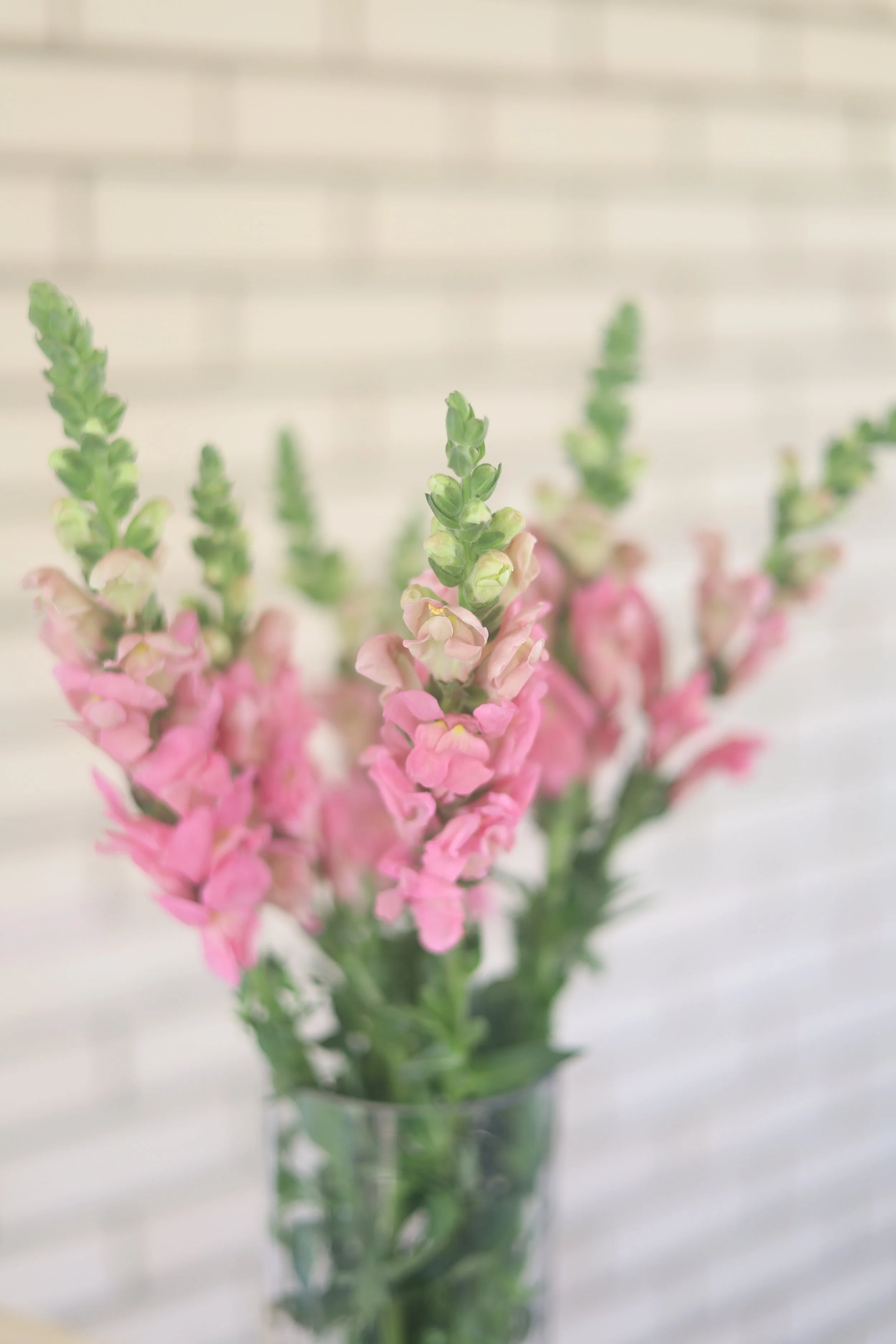 Image 1 of 10
Image 1 of 10

 Image 2 of 10
Image 2 of 10

 Image 3 of 10
Image 3 of 10

 Image 4 of 10
Image 4 of 10

 Image 5 of 10
Image 5 of 10

 Image 6 of 10
Image 6 of 10

 Image 7 of 10
Image 7 of 10

 Image 8 of 10
Image 8 of 10

 Image 9 of 10
Image 9 of 10

 Image 10 of 10
Image 10 of 10











Hollyhock Chaters Double Salmon
Alcea rosea
Large stems hold 3-4” double blooms in peachy pink tones that add height to the back of garden beds in summer through fall. Hollyhocks sow freely so don’t be surprised if plants spread and bloom for years to come. Blooms are especially attractive to bees and other pollinators and are edible. Plants can be grown in hot climates and are deer resistant
Seed Count: approximately 25-50 seeds
Plant Height: 5-7’
Light Requirements: full sun
Soil Preference: rich, moist, well-draining soil, pH 6-8
USDA Zones: 3-8 (short-lived perennial)
How to Grow
Germination: 10-21 days at 70-75F
Seeding Depth: 1/8” depth, light aids germination
Plant Spacing: 2’
Days to Maturity: may bloom the first year if seeded early, but typically bloom the second year
Early-Season Seeding: Start seed indoors 6-8 weeks before the last frost date, transplant after the danger of frost has passed. Direct seed outdoors after the last frost date or when soil temperature is above 70F.
Late-Season Seeding: Direct seed outdoors in early-fall. Hollyhocks freely self sow.
Growing Tips: Hollyhocks are a perennial and may not bloom until the 2nd year of growth. They are also susceptible to rust fungus and powdery mildew. Avoid irregular or overhead irrigation and allow airflow to plants to prevent disease issues. Stems are tall and may require support. In the fall, cut stalks after they die back and remove them to prevent disease spreading to next years’ blooms.
Cut Flower: Can be used as a cut flower but require special care to maintain vase-life. The stems will need to be charred at the base after harvesting to prevent flower sap leaking and flower wilt. Vase-life 4-5 days using this method. Stems can be cut again and recharred after 5 days to extend the vase-life.
Alcea rosea
Large stems hold 3-4” double blooms in peachy pink tones that add height to the back of garden beds in summer through fall. Hollyhocks sow freely so don’t be surprised if plants spread and bloom for years to come. Blooms are especially attractive to bees and other pollinators and are edible. Plants can be grown in hot climates and are deer resistant
Seed Count: approximately 25-50 seeds
Plant Height: 5-7’
Light Requirements: full sun
Soil Preference: rich, moist, well-draining soil, pH 6-8
USDA Zones: 3-8 (short-lived perennial)
How to Grow
Germination: 10-21 days at 70-75F
Seeding Depth: 1/8” depth, light aids germination
Plant Spacing: 2’
Days to Maturity: may bloom the first year if seeded early, but typically bloom the second year
Early-Season Seeding: Start seed indoors 6-8 weeks before the last frost date, transplant after the danger of frost has passed. Direct seed outdoors after the last frost date or when soil temperature is above 70F.
Late-Season Seeding: Direct seed outdoors in early-fall. Hollyhocks freely self sow.
Growing Tips: Hollyhocks are a perennial and may not bloom until the 2nd year of growth. They are also susceptible to rust fungus and powdery mildew. Avoid irregular or overhead irrigation and allow airflow to plants to prevent disease issues. Stems are tall and may require support. In the fall, cut stalks after they die back and remove them to prevent disease spreading to next years’ blooms.
Cut Flower: Can be used as a cut flower but require special care to maintain vase-life. The stems will need to be charred at the base after harvesting to prevent flower sap leaking and flower wilt. Vase-life 4-5 days using this method. Stems can be cut again and recharred after 5 days to extend the vase-life.
Alcea rosea
Large stems hold 3-4” double blooms in peachy pink tones that add height to the back of garden beds in summer through fall. Hollyhocks sow freely so don’t be surprised if plants spread and bloom for years to come. Blooms are especially attractive to bees and other pollinators and are edible. Plants can be grown in hot climates and are deer resistant
Seed Count: approximately 25-50 seeds
Plant Height: 5-7’
Light Requirements: full sun
Soil Preference: rich, moist, well-draining soil, pH 6-8
USDA Zones: 3-8 (short-lived perennial)
How to Grow
Germination: 10-21 days at 70-75F
Seeding Depth: 1/8” depth, light aids germination
Plant Spacing: 2’
Days to Maturity: may bloom the first year if seeded early, but typically bloom the second year
Early-Season Seeding: Start seed indoors 6-8 weeks before the last frost date, transplant after the danger of frost has passed. Direct seed outdoors after the last frost date or when soil temperature is above 70F.
Late-Season Seeding: Direct seed outdoors in early-fall. Hollyhocks freely self sow.
Growing Tips: Hollyhocks are a perennial and may not bloom until the 2nd year of growth. They are also susceptible to rust fungus and powdery mildew. Avoid irregular or overhead irrigation and allow airflow to plants to prevent disease issues. Stems are tall and may require support. In the fall, cut stalks after they die back and remove them to prevent disease spreading to next years’ blooms.
Cut Flower: Can be used as a cut flower but require special care to maintain vase-life. The stems will need to be charred at the base after harvesting to prevent flower sap leaking and flower wilt. Vase-life 4-5 days using this method. Stems can be cut again and recharred after 5 days to extend the vase-life.